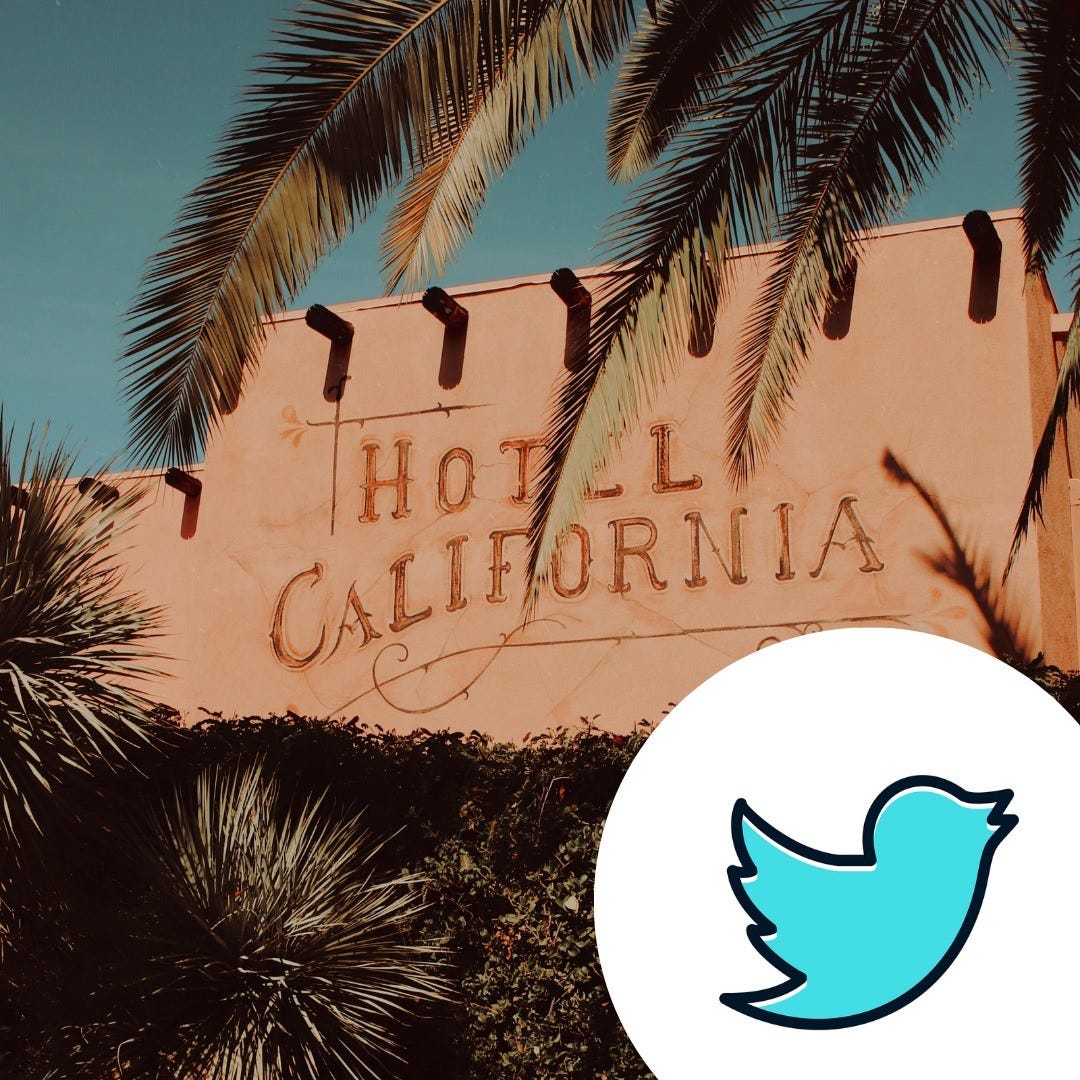Hotel California: Journalists, columnists and politicians who say they are leaving Twitter are full of lies
They can check out of Twitter any time they like, but they can never really leave.
On Friday, American broadcaster CBS took the bold step of announcing that it was going to pause its activity on Twitter. Within a few short hours, they had reversed course.
This move was highly predictable.
Speculation about a mass exodus from the social media platform has run rampant since billionaire entrepreneur Elon Musk took over the company a few weeks ago. Musk has since made significant changes to the company’s structure and product offerings. Many of these changes have been breathlessly condemned by Twitterati, followed by threats to leave the platform that for the most part, have not been followed through.
The reason for this is pretty simple. Twitter is now a core part of how politics and journalism function.
Now, I’m no journalist. But I’ve been through thousands of media interviews, scrums, panels, and press conferences in my lifetime. I also have a lot of experience trying to pitch stories to reporters. I know that during the course of the day, journalists need to figure out how to generate content that will keep their audience engaged.
Enter Twitter.
Prior to Twitter, it was harder to find content or scoops. But as the platform grew, its biggest asset became its user base of academia, policymakers, media, business folk, and other assorted decision-makers and thinkers who shared thoughts in short, written sound bites. On Twitter, diverse members of this “policy class” and the general public actually collide with one another and are exposed to each other's thoughts, sometimes in dramatic fashion.
This regular interaction between silos of so many different worldviews and perspectives simply didn’t exist before the platform and has not been replicated by any other. There is no other platform that brings together so many different thinkers from so many different walks of life and areas of subject matter expertise in short, written format, with an easy-to-use interface.
And that’s the main reason why the policy class will stay on the platform in spite of their squeals of protest. The ideas and observations that are born out of Twitter are the sources of great content. Look no further than any news story on any medium - they all reference content that started on Twitter in one way or another.
There are other benefits, of course. Just like starting a fire requires kindling, Twitter allows users who are communicators to test out ideas, or preposition and gain interest for something ahead of a major communications push. And in a world dominated by video content, it's the only platform whose bread and butter is brief, written content. Sometimes something is better communicated with a few short written words as opposed to a full-length article, or a video. Twitter provides that platform to communicators, and a built-in audience to expose ideas to.
It also provides a tool that can mitigate potential problems before they grow into big fires. For example, knowing which issues various reporters are chasing by what they’re putting on their feeds is helpful before stepping into a press conference. Virtually every corporate or political issues manager scans Twitter on a regular basis to make sure problems aren’t on the horizon or their messaging is permeating.
There are also few, if any, viable alternatives to the platform. Most new apps trying to be Twitter, or “improve” on it, have difficult to navigate interfaces, overzealous moderators, are structured to silo worldviews, are more heavily reliant on video content than writing, or a combination of all of these things. So if someone has integrated Twitter into their business model, there are few viable options for them to consider.
There are downsides, to be sure. I’ve had to go to court to testify against someone who was found guilty of criminally harassing me on the platform. The stream of hate, vitriol, and insanity that is put on the platform is bananas. And the issue of identity theft and impersonation may have just gotten worse with Musk’s changes to the verification system.
But these are, in theory, solvable problems. Users can block or mute accounts which hamper their use of the platform. Musk himself has stated that the company has been working to downgrade the views that hate speech tweets receive. And in many jurisdictions, hate speech and criminal harassment laws exist but just need more resources to see better enforcement. As for me, I limit my time on the app, and have a clear process and objectives for engagement that I try to adhere to.
All that said, there's more work to be done to make Twitter a safer space. But for the policy class, the benefits of Twitter don’t just outweigh the downsides. Leaving the platform would leave a giant, tweety-bird shaped hole in their day-to-day operations.
Musk knows this, and is making business decisions based on it. So to all those columnists, writers, and more who tweet about leaving but have no real intention of doing so - admit that we are all just prisoners here of our own [Apple or Android] device. Taking that position while pressing for smart improvements is a better course of action than what CBS did over the weekend.




